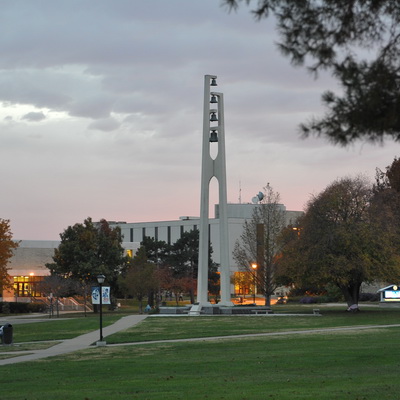
Find Your Place in the World
Come experience meaningful coursework, travel, community service, and integrated studies that will help you make sense of a fractured world … and will give you the knowledge, tools and networking connections to find your place in it.
Areas of Study
Learn more about scholarship opportunities and program details by clicking on an area listed below:
- Art
- Biology
- Chemistry
- Communication Studies
- Computer Information Sciences
- English
- History
- Interdisciplinary Studies
- Kinesiology
- Mass Media
- Mathematics and Statistics
- Modern Languages
- Music
- Philosophy and Religious Studies
- Physics and Astronomy
- Political Science
- Psychology
- Sociology and Anthropology
- Theatre
Masters in Comm. and Leadership
This 30 graduate credit hour, interdisciplinary program is designed for working professionals. The eight-week courses are delivered entirely online using a highly interactive and intuitive learning management and video conference system. As an online student, you truly get the best of both worlds - a dynamic online learning experience grounded in the more than 150 year history and tradition of excellence at Washburn University.Master of Arts in Psychology (Clinical)
The Master of Psychology equips student with tools to interact with different client populations. Our psychotherapy techniques courses focus on the development of cognitive-behavioral, interpersonal, brief, and client-centered psychotherapy skills. Students are exposed to a variety of other approaches (e.g., family systems, group) through coursework, internships, and direct interaction with clients.- Masters in Comm. and LeadershipMasters in Comm. and Leadership
- Masters in Psychology (Clinical)Masters in Psychology (Clinical)
Scholarships and Financial Aid
CAS Areas of Study
GET IN TOUCH WITH College of Arts & Sciences
College of Arts & Sciences
College of Arts & Sciences, Room 110
1700 SW College Ave.
Topeka, KS 66621
Phone & Email
785.670.1636
Fax: 785.670.1297
cas@washburn.edu
Dean's Office Staff
Faculty and Staff Information





